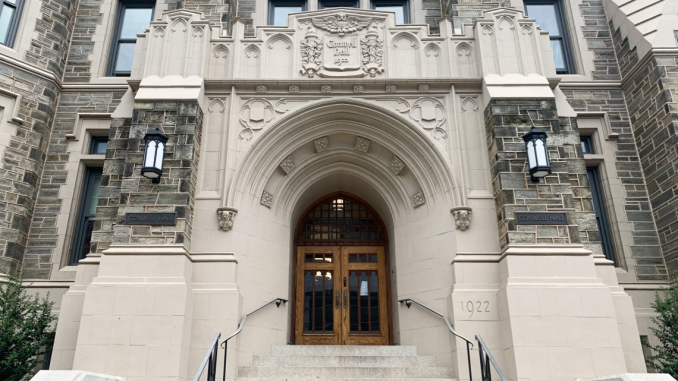
Temple released a response to the Supreme Court’s rejection of race based affirmative action Thursday, assuring the community that diversity and inclusion is among the core values of the university.
The landmark decision sets a new precedent for college admissions offices nationwide and leaves questions about what the impact will be on colleges and universities across the country, including Temple.
“We and other institutions of higher education must now determine how to abide by the decision while promoting the values we cherish and ensuring the best experiences for our students,” acting President JoAnne Epps wrote in a message to the Temple community. “‘How’ we do this will evolve; ‘why’ remains abundantly clear.”
The Supreme Court ruled Thursday that affirmative action admissions at the University of North Carolina and Harvard are unconstitutional, The Associated Press reported.
The conservative majority voted 6-3 and 6-2 in the North Carolina and Harvard affirmative action cases, respectively. Both institutions’ affirmative action admissions plans took into account prospective students’ race. Chief Justice John Roberts delivered the majority opinion.
“Because Harvard’s and UNC’s admissions programs lack sufficiently focused and measurable objectives warranting the use of race, unavoidably employ race in a negative manner, involve racial stereotyping, and lack meaningful end points, those admissions programs cannot be reconciled with the guarantees of the Equal Protection Clause,” Roberts wrote.
The cases were brought by conservative activist Edward Blum, president of Students for Fair Admissions, an organization that opposes racial classifications in college admissions. Blum argued the Constitution forbids race as a factor in college decisions and called for overturning previous court cases that protected affirmative action.
The Supreme Court has upheld race-conscious college admissions programs as recently as 2016.
“As we focus on providing an outstanding educational experience that prepares our students to make an impact, we remain steadfastly committed to our mission of access and to our core values of diversity and inclusivity,” Epps wrote. “We will pursue that enduring commitment within the bounds of, and with respect for, the rule of law.”


Be the first to comment